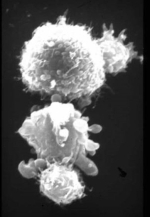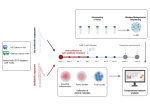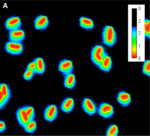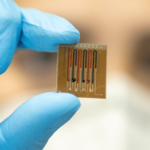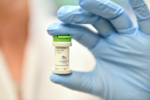Scientists discover the function of a mysterious HIV component
A research team including scientists from Heidelberg University Hospital has gained new insights into HIV-1. Researchers have discovered the mechanism behind an important step in the life cycle of HIV. Working together with teams at Heidelberg and Yale Universities, they found that the enigmatic “spacer peptide 2”, one of the virus components, plays a key role in converting immature HIV-1 particles into infectious particles.
https://www.gesundheitsindustrie-bw.de/en/article/press-release/scientists-discover-function-mysterious-hiv-component